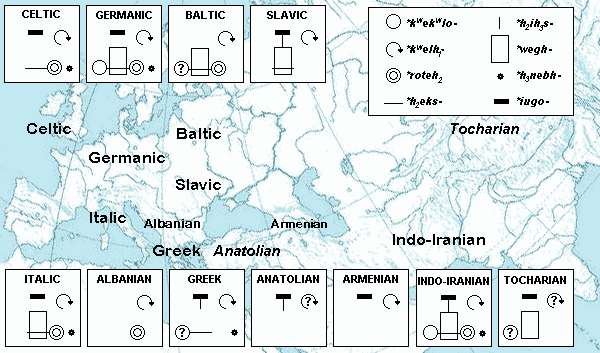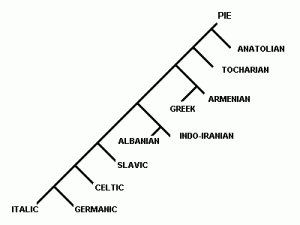As I have already said,English is a Germanic language. The fact that lots of words are taken from Latin or French does not make English a Romance language.
Those words were adapted to Anglo-Frisian pronunciation/sonority.
I already gave a quote about some kind of typical sounds of English and Frisian.
If an Italian learns American English and start to talk with a strong American accent,than he will also talk Italian with an American accent.
So,the sonority of Italian is Romance.
For example Romanians who are living in Italy or Spain and speak most of the time Italian (or Spanish) do not have any weird accent,while talking in Romanian.
However,Romanians who are living in UK or US and speak most of the time English are having clearly a weird accent when speaking in Romanian.
That comes from the fact that the sounds from which English and Frisian words are comprised are different ,being typical to West Germanic languages.
Let me explain it in other way,if both English and Italian are taking a word from an exotic language,for a fruit,or so on,one is pronouncing the word in a way and another one,in a different way.
For example coffee.
I haven't read every post, but I don't think anyone is saying that English is a Romance language. I think what they're trying to say is that it's usually placed among the Germanic languages because of grammar and some basic vocabulary, but that it has drifted far from those roots in the direction of the Romance languages, certainly in the area of vocabulary. All of this has been established by linguists, so I don't really understand what point you're trying to make here.
The relationship among the Romance languages is much closer than that between English and German. Even without studying each other's languages, Italian and Spanish speakers can get the gist of a movie scene or a song in the other language. With French, although the written language is very easy to decipher, spoken French is more challenging because there are more differences in pronunciation. Most Italians can't understand Romanian, although I had occasion to spend some time there once, and started to pick some of it up. The problem is not just the Slavic loan words.
The changes that occurred on the journey from German to English are much more profound. One problem, as has been explained to you many times, is that the majority of the English vocabulary is Latin based. The other has to do with changes in spelling and grammar.
I assure you that this is totally unintelligible to native English speakers:
"Beowulf in Anglo-Saxon
Hwæt! We Gardena in geardagum,
þeodcyninga, þrym gefrunon,
hu ða æþelingas ellen fremedon.
Oft Scyld Scefing
sceaþena þreatum,
5 monegum mægþum, meodosetla ofteah,
egsode
eorlas. Syððan ærest wearð
feasceaft funden, he þæs frofre gebad,
weox under wolcnum, weorðmyndum þah,
oðþæt him æghwylc þara ymbsittendra"
English speakers would have a much easier time reading French.
Chaucer's English is a little easier, but when I took a course in him people were still dropping like flies out of the course because it was too difficult. Also the pronunciation has greatly changed. English speakers can't understand this, but Italian speakers can understand a lot of Latin.
https://www.youtube.com/watch?v=_K13GJkGvDw
No everyday English speaker can understand a movie in German. Picking out one word out of 20 does not equal mutual intelligibility. Yes, there are some sounds that a German speaker learning to speak English might be able to pick up easier than a Romance speaker, but there are many that he can't duplicate. Did you bother to listen to Henry Kissenger speak? At times he can become unintelligible. The same thing happens with some Slavic speakers.
Perhaps you're not aware of this because you're not a native English speaker yourself.
If an Italian learns American English and start to talk with a strong American accent,than he will also talk Italian with an American accent.
There are some linguists who hold that one can only speak one language perfectly. Sadly, that may be true. However, what you've just pointed out would also apply to a German who learns American English and has less and less contact with German. His German will acquire an "American" sound. The accents are not identical. If they were, Henry Kissinger wouldn't sound so foreign even after fifty to sixty years living in the U.S. Maybe you can't hear the differences because you're not a native English speaker.
Btw, because you can't hear your Romanian accent when you're speaking Italian doesn't mean native Italian speakers can't hear it, just as they can hear a Spanish accent. I'll grant you that it's less offensive to the ear than what Americans and Brits etc. produce.




